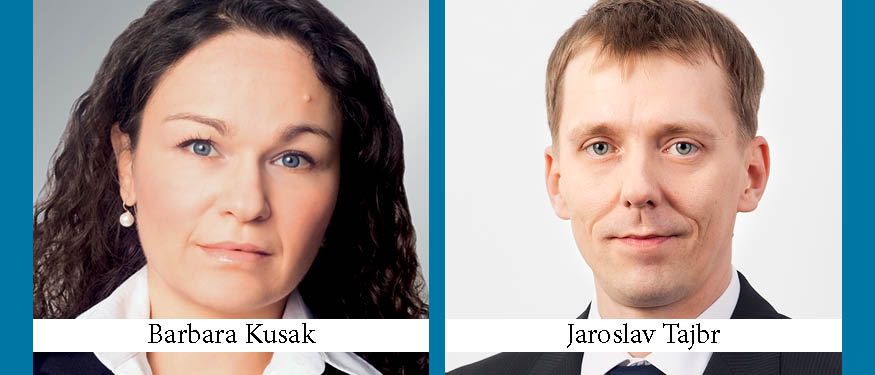After the first wave of domain registrations that accompanied the technology boom in the Czech Republic at the beginning of the millennium, the number of speculative domain registrations have recently increased again. According to statistical data, these speculative activities – which take the form of both cyber-squatting and typo-squatting – have increased by dozens of percent in the past years.
Both cyber-squatting and typo-squatting involve the registration of domains that prey on established names, such as company names, brand names, or names of celebrities. Cybersquatting means that a speculator opportunely registers a domain name in order to deceptively lure persons interested in the relevant name to the site. Then that person places commercials on the website or claims “compensation” from the holder of the brand. Typo squatters benefit from typos or mistakes made when entering URL addresses or expressions in search engines, which happens particularly often on smartphones. Past targets of typo-squatting include Vodafone (e.g., vodafon.cz) and Google (e.g., goggle.com).
A well known example of this in the Czech Republic was the case of the Russian banking leader. An alert speculator had registered the domain name “sberbank.cz” several years before Sberbank launched its business in the Czech Republic. The speculator had cunningly employed the flexibility of the Czech language, and in order to defend himself from being accused of speculative registration, created a Czech expression “sběr baňk” by adding diacritics. In Czech, this expression refers to the unlikely activity of collecting laboratory glass flasks. His website then contained, apparently also deliberately, a sort of obscure presentation of glass flasks. When entering the Czech market Sberbank had to make an application to the arbitration court. The court confirmed the bank’s claim, and Sberbank has been using the domain sberbank.cz as well as sberbankcz.cz since then. However, that was not the end of the dispute over the domain name: the defendant filed a court action in which it claimed that the arbitration court did not have jurisdiction to deal with the case – and succeeded. The judgment was based on formal grounds that stem from the judgment of the Supreme Court to which we refer below. The proceedings are still pending.
Czech law provides certain protection mechanisms against speculators. The most effective protection, naturally, is to register a domain early, before any speculator does. If speculative registration cannot be prevented, some protection is provided by trademarks. But if a website operated under the speculatively registered domain offers products completely different from those for which the trademark is registered, the defense can be more difficult. Trademarks are registered for certain types of goods or services. If the domain is “attacking” the business name of the company (sberbank.cz), a possible defense is to use the business person’s name, as individuals are protected by the right to their names that may not be exploited in commercial practices. Finally, one can turn to the protection against unfair competition.
Defense against speculative domain registration is relatively complicated from a procedural point of view as well. The national domain “.cz” is managed by the national registrar, CZ.NIC. Some time ago, the organization issued Alternative Dispute Resolution Rules, according to which an applicant can choose between traditional court proceedings and arbitrations in a specialized arbitration court. According to the registrar, this was an arbitration agreement made in the form of the so-called “public arbitration offer.” However, the Supreme Court has recently ruled that that this method of dispute resolution is illegal, because it does not contain a clear expression of the will of the domain owner (the defendant) to resolve the dispute in this particular manner. This caused a minor revolution in the area of domain disputes in the Czech Republic, since many arbitration awards issued earlier could have been considered invalid. Accordingly, new rules have recently come into effect. Alternative dispute resolution has a contractual basis – i.e., both parties explicitly agree to ADR being chosen. The new ADR method is a quick solution through an online platform, strongly inspired by the resolving of disputes involving “.eu” domains. However, in these proceedings one can only request that the registration of the domain name be cancelled or transferred to the applicant; no damages or costs may be sought. Parallel court proceedings may therefore still be, and often are, initiated. It is advisable to choose a good litigation strategy, including the timing of claims, as speculators have already discovered various means of defending themselves, or at least of relieving themselves of liability.
By Barbara Kusak, Partner, and Jaroslav Tajbr, Senior Associate, Noerr Czech Republic
This Article was originally published in Issue 3.3 of the CEE Legal Matters Magazine. If you would like to receive a hard copy of the magazine, you can subscribe here.




